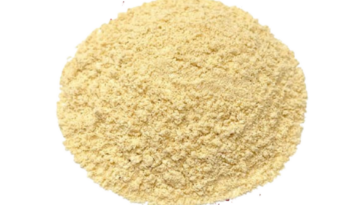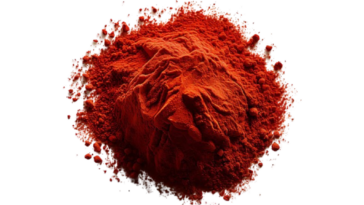Alfalfa extract, derived from the Medicago sativa plant, has a rich history dating back thousands of years. Originating in ancient Iran and the eastern Mediterranean region, alfalfa was initially cultivated for its nutritional benefits and medicinal properties. Its use spread throughout ancient civilizations, including the Greeks, Romans, and Arabs, who recognized its value in promoting health and vitality. The name “alfalfa” is derived from Arabic, meaning “father of all foods,” a testament to its esteemed status in traditional medicine and agriculture.
Throughout history, alfalfa has been prized for its versatility and nutritional content. Its deep root system allows it to absorb a wide array of essential nutrients from the soil, making it a nutrient-dense source of vitamins, minerals, and phytonutrients. In traditional medicine, alfalfa extract has been used to alleviate various ailments, including digestive issues, arthritis, and even to promote lactation in nursing mothers. Today, alfalfa extract remains a popular ingredient in dietary supplements, skincare products, and herbal remedies, valued for its potential health benefits and contribution to overall well-being.
Vitamins & Minerals:
Alfalfa extract, derived from the Medicago sativa plant, is rich in various vitamins and minerals essential for human health. Here’s a list of some of the key vitamins and minerals found in alfalfa extract:
- Vitamin A: An important fat-soluble vitamin, vitamin A plays a crucial role in maintaining healthy vision, supporting the immune system, and promoting skin health. It also contributes to proper cell growth and differentiation, particularly in epithelial tissues.
- Vitamin C: Ascorbic acid, or vitamin C, is a powerful antioxidant that helps protect cells from damage caused by free radicals. It is also essential for collagen synthesis, which is vital for the health of connective tissues, skin, and blood vessels. Additionally, vitamin C supports immune function and enhances the absorption of non-heme iron from plant-based foods.
- Vitamin K: Vitamin K is essential for blood clotting, as it is involved in the synthesis of clotting factors. Beyond its role in coagulation, vitamin K also contributes to bone health by aiding in the mineralization of bones and reducing the risk of fractures.
- Calcium: Calcium is a mineral crucial for the formation and maintenance of strong bones and teeth. It also plays a role in muscle function, nerve transmission, and blood clotting. Adequate calcium intake is especially important during childhood, adolescence, and older adulthood to support bone health and prevent osteoporosis.
- Iron: Iron is necessary for the production of hemoglobin, the protein in red blood cells that carries oxygen from the lungs to the rest of the body. Insufficient iron intake can lead to iron deficiency anemia, characterized by fatigue, weakness, and impaired cognitive function. Iron from plant-based sources like alfalfa extract is non-heme iron, which is not as readily absorbed as heme iron from animal sources but can still contribute to overall iron intake when consumed with vitamin C-rich foods to enhance absorption.
Probiotic, Prebiotic, or Postbiotic:
Alfalfa extract, derived from the Medicago sativa plant, is primarily known for its rich nutritional profile, containing vitamins, minerals, and phytonutrients. While it’s not traditionally considered a probiotic, prebiotic, or postbiotic in the same way as some other substances, it can indirectly support gut health through various mechanisms.
- Prebiotic Potential: Alfalfa extract contains soluble fibers like inulin and fructooligosaccharides (FOS), which act as prebiotics. Prebiotics are non-digestible fibers that feed the beneficial bacteria in the gut, promoting their growth and activity. By providing a favorable environment for probiotic bacteria to thrive, alfalfa extract indirectly supports gut health.
- Nutritional Support: The vitamins, minerals, and phytonutrients found in alfalfa extract can support overall health, including gut health. Adequate nutrition is essential for maintaining a healthy balance of gut bacteria and supporting the gut lining’s integrity.
- Antioxidant Properties: Alfalfa extract contains various antioxidants such as flavonoids and phenolic compounds, which can help reduce oxidative stress in the body. Oxidative stress can disrupt the balance of gut bacteria, and by reducing it, alfalfa extract may indirectly support a healthy gut microbiota.
- Anti-inflammatory Effects: Some studies suggest that components of alfalfa extract may possess anti-inflammatory properties. Chronic inflammation in the gut can disrupt the balance of gut bacteria and contribute to various digestive disorders. By reducing inflammation, alfalfa extract may help support a healthier gut environment.
While alfalfa extract doesn’t directly introduce live beneficial bacteria like probiotics or provide metabolites like postbiotics, its nutritional content, prebiotic fibers, antioxidant properties, and potential anti-inflammatory effects can contribute to overall gut health indirectly. However, more research specific to alfalfa extract’s effects on gut microbiota composition and function would be beneficial to fully understand its role in promoting gut health.
Dietary & Health Information:
Alfalfa extract, derived from the Medicago sativa plant, is renowned for its potential health benefits. It’s often consumed in various forms, including capsules, tablets, powders, and teas. Here’s some dietary and health information about alfalfa extract:
- Nutritional Profile: Alfalfa extract is rich in essential vitamins, minerals, and phytonutrients. It contains vitamins A, C, E, and K, as well as various B vitamins. It also provides minerals such as calcium, potassium, phosphorus, and iron. Additionally, alfalfa extract contains chlorophyll, flavonoids, and other antioxidants.
- Health Benefits:
- Nutrient Density: Alfalfa extract is a nutrient-dense food, meaning it provides a wide range of essential nutrients in relatively low calories.
- Antioxidant Properties: The antioxidants in alfalfa extract help neutralize harmful free radicals in the body, thereby reducing oxidative stress and lowering the risk of chronic diseases.
- Heart Health: Some research suggests that alfalfa extract may help lower cholesterol levels and improve heart health.
- Blood Sugar Control: Preliminary studies indicate that alfalfa extract may have potential in managing blood sugar levels, which could benefit individuals with diabetes or those at risk of developing the condition.
- Digestive Health: Alfalfa extract contains dietary fiber, which supports digestive health by promoting regular bowel movements and preventing constipation.
- Safety and Dosage:
- While alfalfa extract is generally considered safe for most people when consumed in moderate amounts, excessive intake may lead to certain risks.
- Alfalfa extract contains compounds called saponins, which in large quantities may interfere with the absorption of certain nutrients and have adverse effects on health.
- To minimize the risk of adverse effects, it’s advisable to adhere to recommended dosages. However, specific dosage recommendations may vary depending on factors such as age, health status, and the form of alfalfa extract consumed.
- As a general guideline, it’s prudent to follow the dosage instructions provided on the product label or consult with a healthcare professional for personalized recommendations.
- There’s no universally established maximum daily intake for alfalfa extract, but consuming it in moderation is key to reaping its potential health benefits while minimizing risks.
- Potential Interactions: Alfalfa extract may interact with certain medications, particularly blood thinners like warfarin, due to its vitamin K content. Individuals taking such medications should exercise caution and consult with a healthcare provider before using alfalfa extract supplements.
- Quality and Source: When purchasing alfalfa extract supplements, it’s essential to choose reputable brands known for their quality and safety standards. Organic products may be preferable to minimize exposure to pesticides and other harmful substances.
In summary, alfalfa extract offers a range of potential health benefits, but it’s important to use it responsibly and in moderation. Consulting with a healthcare professional before starting any new supplement regimen is always advisable, especially for individuals with underlying health conditions or those taking medications.




 No products in the cart.
No products in the cart.